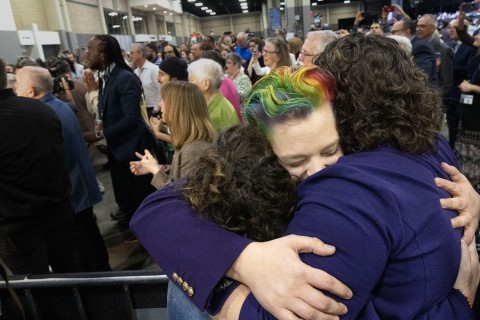Sense of agency
The last time my family visited New York City, we stopped by a board game coffeehouse. We played Pandemic, which allowed the three of us to work together to stop widespread disease from taking over the planet. It took a bit of skill and a bit of luck, but we did it. We supplied the world with the vaccine to stop disease, panic, death and destruction. We left the coffeehouse as heroes.
There was a sort of exhilarating feeling that came from organizing the data, solving the problems, and working together. It’s moments like this that make game designer Jane McDonigal believe that we can change the world through games. It’s what drives her thesis in Reality is Broken.
Dr. McDonigal knows that 99% of boys under 18 and 94% of girls under 18 play video games. While we play (with cards, boards, balls, or computers), we learn strategic thinking, problem solving and organizing skills. We have positive emotional responses. McDonigal would like to harness all of that time, energy, and emotion into solving the world’s greatest problems. She wants to design games that will devop and transform our positive habits from the game to our lives.
I heard McDonigal lecture at San Francisco Theological Seminary this week, during the launch of their Center for Innovation in Ministry. And I came away with another helpful way of thinking about church. One thing that struck me was an overall sense of agency. It felt so different from the helplessness that comes when we're stuck within a church or denominational system that we feel powerless to change.
Of course, when we play a video game, we can die, but then we have another life. When our additional lives run out, we start over. We know that the game has an achievable end. So, we don’t mind spending hours on it, in anticipation of the win, because we know it’s inevitable.
Right now, there are a lot of churches and pastors in really difficult situations. Funerals, decreased attendance, and shrinking budgets can make for very high anxiety and a feeling of hopelessness. Often I talk with church leaders who seem fixated on problems, like a dog who can’t let go of a nasty chew toy. When that problem is finally wrestled from her mouth, she finds another problem.
It’s not the pastor’s fault. It’s just an extraordinarily difficult job right now. Yet, I’m wondering if stepping back with some strategic understanding might be helpful for all us. We have obstacles before us, but we also have a million solutions. And more than that, we have an understanding that the game is fixed. In our favor. The win is inevitable, even if it doesn’t look the way we expect it will. Not to mention... having a bit of fun probably wouldn't hurt us right now either.





